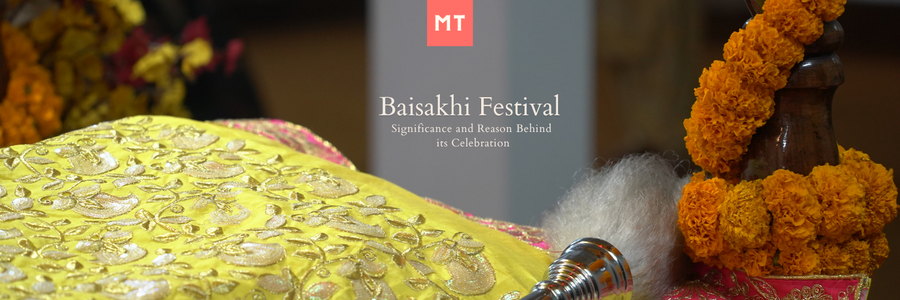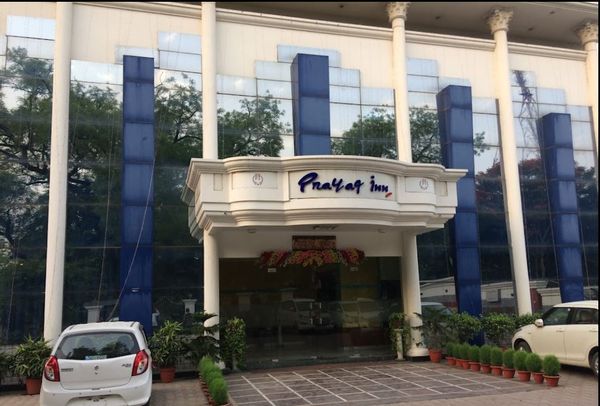Indian Festival series : Baisakhi Festival
 14 Apr, 2023
7 mins read
140
14 Apr, 2023
7 mins read
140

India is known as the land of Agriculture since it is the main source of income for a majority of the population. Agriculture and associated sectors account for about 16% of India's GDP and employ about 50% of the workforce.
In India, a farmer nourishes his land and crops like his mother, and there are a lot of emotions and sentiments attached to his land. Many Harvest Festivals, including Baisakhi, Pongal, Onam, Makar Sankranti, and Lohri, are celebrated here as a way to show gratitude to nature for all that it has provided. These Festivals are celebrated with great fervor and enthusiasm across the country and are an important part of the country's rich cultural heritage.
In this Article, you will understand the significance and reason behind the celebration of the harvest festival " Baisakhi " which is mainly celebrated in the Indian state of Punjab.
So without any further delay, Let's get started!
What exactly is the Baisakhi festival?
Baisakhi, also known as Vaisakhi, is a harvest festival celebrated across India, especially in the Indian state of Punjab. The festival signifies the beginning of the Sikh New Year and honors Guru Gobind Singh's foundation of the Khalsa Panth, the community of initiated Sikhs, in 1699.
Baisakhi is usually celebrated on April 13 or 14 every year, and it holds great importance for both Sikhs and Hindus. It is considered a time for new beginnings, and people take part in various rituals and cultural events to mark the occasion.
What is the Significance of the festival Baisakhi?
Baisakhi or Vaisakhi is celebrated with great affection by Sikhs because on this day in 1699 the tenth Sikh Guru, Gobind Singh Ji, laid the foundation of the Khalsa Panth. It is also referred to as the Sikh New Year's celebration. Guru Gobind Singh Ji, the tenth Sikh Guru at the time, hosted the Baisakhi celebrations that resulted in the formation of the Khalsa in 1699 which means to be pure, to be clear, and to be free. Guru Gobind Singh Ji, also known as the "Final Living Guru of Sikhism," was born in Punjab. In connection with the formation of the Khalsa, an army was formed to counter societal flaws as well as the Mughal Emperors and their armies.
Baisakhi is now celebrated not just by Sikhs and Punjabis but by people of all backgrounds. It is known as "Khalsa Sirjana Diwas," or "Khalsa's Birth." Baisakhi is celebrated differently by Sikhs and Punjabis, and many of them do so in their unique way. These are not the same as village harvest festivals. Nowadays, Baisakhi is no longer just a celebration for people in rural areas. It's also a celebration for people who live in cities and towns.
Sikhs commemorate Guru Gobind Singh, their tenth guru, on this day. On the same day, he established the order of Khalsa and gave it a new hope. Because it is a good time, there are many places in India where people can be blessed on this day. In terms of tradition, it varies from family to family. Some food is distributed along the way. The path then ends with more food, such as kadah parshad and langar.
How is the Baisakhi festival Celebrated?
People in the villages of Punjab really have a satisfactory time when the crops are harvested. Many people gather for Baisakhi meals in Anandpur Sahib, the Khalsa's birthplace. People in cities visit gurdwaras with their families on a regular basis. Not only Sikhs visit gurdwaras with their families and friends to take holy baths and feast. People of other faiths also go there to do the same.
The gurdwaras are decorated on this day, and there is a 48-hour Akhand path and bhog. The day is traditionally honored by kirtan, kadah, prasad, and langar. On this day, women prefer to wear white suits with an orange dupatta to the gurdwara.
People take a dip in rivers and visit Sikh shrines called gurudwaras to offer prayers and seek blessings. They also prepare special dishes, such as kheer, puri, and halwa, and enjoy them with family and friends. In Punjab, people also participate in Bhangra and Gidda dance performances, which are traditional folk dances that celebrate the harvest season.
In addition to the events mentioned above, fairs are also held from place to place on this day to promote local businesses. Children and teenagers demonstrate their martial arts skills in front of drummers and musicians, while men wield swords, which adds more excitement to the event.
In conclusion, Baisakhi is a meaningful festival that is celebrated with incredible enthusiasm in Punjab and nearby places. It is a day of religious significance for the Sikh community and marks the creation of the Khalsa Panth by Sikh guru, Guru Gobind Singh Ji. It is also a harvest festival that celebrates the bountiful crop and the hard work of farmers. Baisakhi is a secular festival that brings people together, irrespective of their religion or caste and is a time of joy, happiness, and celebration.
Written By:



Hotels at your convenience
Now choose your stay according to your preference. From finding a place for your dream destination or a mere weekend getaway to business accommodations or brief stay, we have got you covered. Explore hotels as per your mood.


